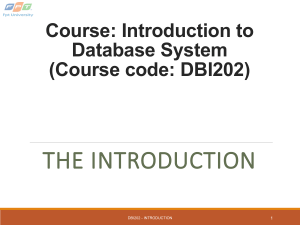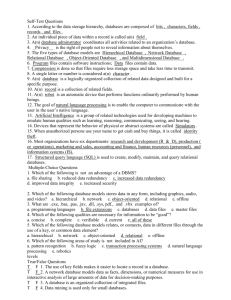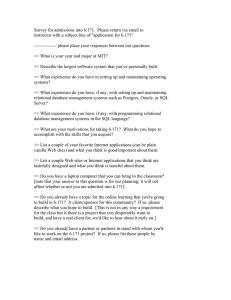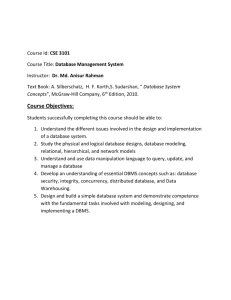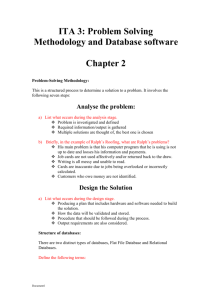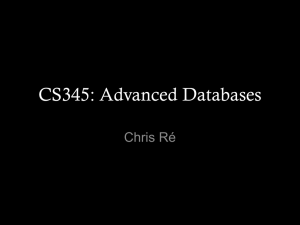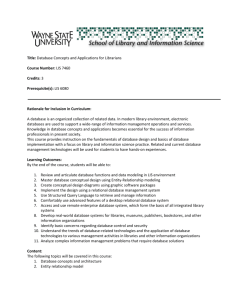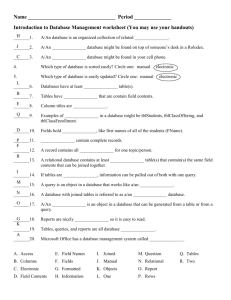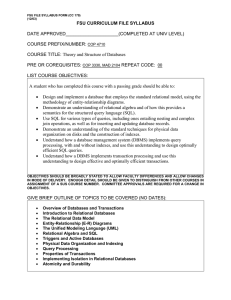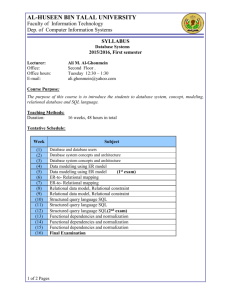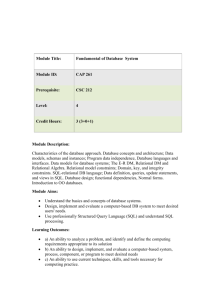Interim Evaluation 2
advertisement
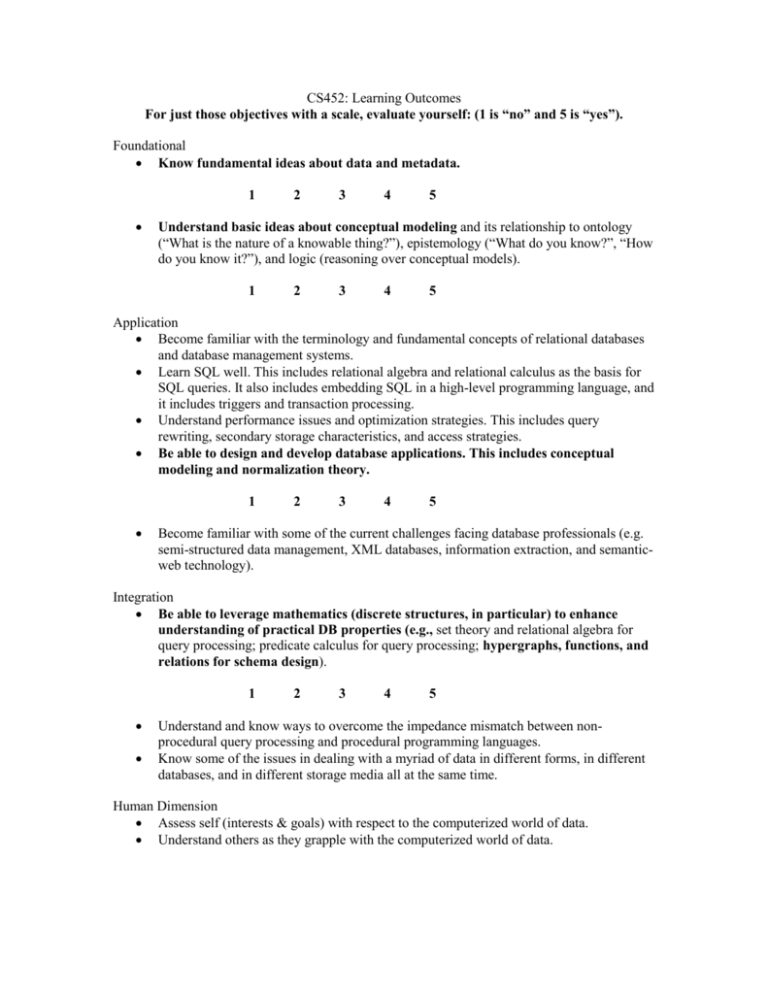
CS452: Learning Outcomes For just those objectives with a scale, evaluate yourself: (1 is “no” and 5 is “yes”). Foundational Know fundamental ideas about data and metadata. 1 2 3 4 5 Understand basic ideas about conceptual modeling and its relationship to ontology (“What is the nature of a knowable thing?”), epistemology (“What do you know?”, “How do you know it?”), and logic (reasoning over conceptual models). 1 2 3 4 5 Application Become familiar with the terminology and fundamental concepts of relational databases and database management systems. Learn SQL well. This includes relational algebra and relational calculus as the basis for SQL queries. It also includes embedding SQL in a high-level programming language, and it includes triggers and transaction processing. Understand performance issues and optimization strategies. This includes query rewriting, secondary storage characteristics, and access strategies. Be able to design and develop database applications. This includes conceptual modeling and normalization theory. 1 2 3 4 5 Become familiar with some of the current challenges facing database professionals (e.g. semi-structured data management, XML databases, information extraction, and semanticweb technology). Integration Be able to leverage mathematics (discrete structures, in particular) to enhance understanding of practical DB properties (e.g., set theory and relational algebra for query processing; predicate calculus for query processing; hypergraphs, functions, and relations for schema design). 1 2 3 4 5 Understand and know ways to overcome the impedance mismatch between nonprocedural query processing and procedural programming languages. Know some of the issues in dealing with a myriad of data in different forms, in different databases, and in different storage media all at the same time. Human Dimension Assess self (interests & goals) with respect to the computerized world of data. Understand others as they grapple with the computerized world of data. Caring 1 2 3 4 5 Seek learning by study and also by faith. Seek a spirit of togetherness in learning. Care about dataits foundational notions, its application. Learning to Learn 1 2 3 4 5 Ask questions to learn (“seek and ye shall find”). Realize that learning is largely under your control. Know how to get help from learning material and from other people. Be able to read and use mathematics to support abstractions that, in turn, support database applications. Comments and suggestions:
